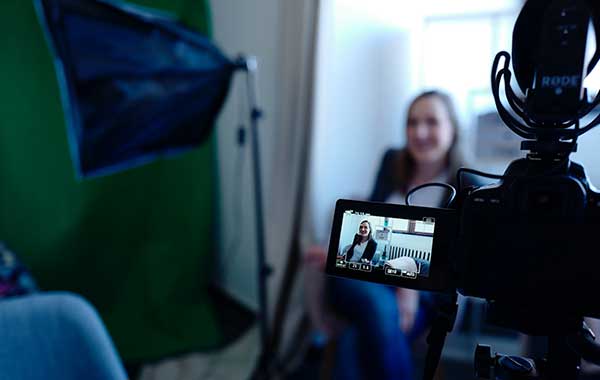By David Eisenstadt
TCGPR
Whether “the customer is always right” is a topic of debate.
Here’s the scenario. Your team has just come through difficult negotiations with a customer who turned out to be the customer from Hades. Despite all best efforts to resolve some issues, your unhappy customer “threatens to go to the news media.” And, the very real possibility that the imagined or real bad news about this experience could be your worst nightmare will likely give you sleepless nights. So, what to do?
When it comes to traditional news media – print (newspapers, magazines), online, radio and TV – there is no question that reporters can certainly create an uncomfortable experience, can interrupt your already hectic schedule and can result in coverage of events you may prefer were left in the background.
But simply put… that’s too bad!
If you’re running a going concern, you owe it to your customers, industry, staff, and stakeholders to enhance your company’s (and your personal) visibility in the marketplace, particularly when you are trying to solve a customer’s problem, which has now become your problem.
You can’t do that selectively by avoiding the news media except when it suits you to go after favourable news coverage.
Nowhere to hide
So, the reporter from the local TV station calls you. What are you going to do? How will you respond? Nowhere to run, nowhere to hide.
In a phrase, it’s much better to accept the necessity and even the desirability of becoming an accessible spokesperson to have your side of the story told truthfully, especially when the going gets tough.
You need to remember that you and your company are merely the subjects of the interview. If you know what you are doing, and prepare yourself, you needn’t become the interviewer’s victim.
Here are 10 recommendations to help you survive those tough interviews, whether live at a news conference, in front of your establishment, on the street in a scrum, or by phone
- Prepare for all major interviews. Best place to start? With the facts and the truth! Don’t assume your familiarity with a situation means you’ve got all the answers.
- Vocalize your responses in advance. Knowing a subject thoroughly and crafting a written response in the clearest, simplest terms are helpful. But you won’t really know how clearly you can explain something vocally until you do just that. Start with a sympathetic listener on your home turf.
- Supply background material. It helps an interviewer to have explanatory information on details they may not know enough about to ask. It also saves time you’d waste covering background you can simply refer to in the written material. Your function should be to comment on issues and situations, not to conduct a seminar on what those issues are.
- Maintain some control from the beginning. For an in-person interview and if there’s time, begin by asking the interviewer about their background. It makes the ensuing conversation less like an interrogation. You can’t do this effectively in a phone interview. If the interviewer is a novice, it helps to reinforce your credentials as the expert in this matter. If the interviewer is highly knowledgeable, you’ve been forewarned.
- Don’t be misled by the apparent simplicity of questions. If you’re worth being interviewed, there’s news value in quoting you directly. The interviewer may understand a concept as well as you do, but may want it explained in your own words.
- Don’t answer hypothetical questions. You might turn them around by explaining what your organization’s policy has been in the past, but there’s nothing to be gained by locking yourself into a position based on a hypothetical situation. If the question is intended to develop an illustration of some point, offer a real-life illustration instead if you can. Beware: Hypothetical questions are an excellent means of leading an interviewee into a trap.
- Don’t presume to redirect the story line. You may prefer news coverage of something unrelated to what the editor or reporter wants to communicate. The interviewer may listen politely, but if what you say is considered a non-story, you’ve wasted time – yours and the interviewer’s. The more helpful you are in responding to the questions asked of you, the better the chances are of improving your organization’s position in the final article or on-air program.
- Conduct interviews without interruption as far as possible. If you’re distracted during an interview, you may discuss business matters with a colleague you’d rather not share with the interviewer. So, don’t do it. Be aware that your interviewer remains attentive and on the job the whole time you’re not.
- Don’t try to BS a novice. You’ll only get away with it as long as the interview itself lasts. Eventually, your comments will cross the desk of a much worldlier editor or producer, who’ll recognize bafflegab for what it is.
- Refer the interviewer to other sources. In any industry-wide roundup, the interviewer may defer to time pressures and rely on leads you provide. Don’t hesitate to recommend sources with viewpoints similar to your own.
Final consideration: Media training.
It’s personal development at its best, and if you learn how to deal with the news media, you can deal with anyone. After all, media training is communications training.

David Eisenstadt is Founding Partner at TCGPR (The Communications Group Inc.), Toronto. tcgpr.com











